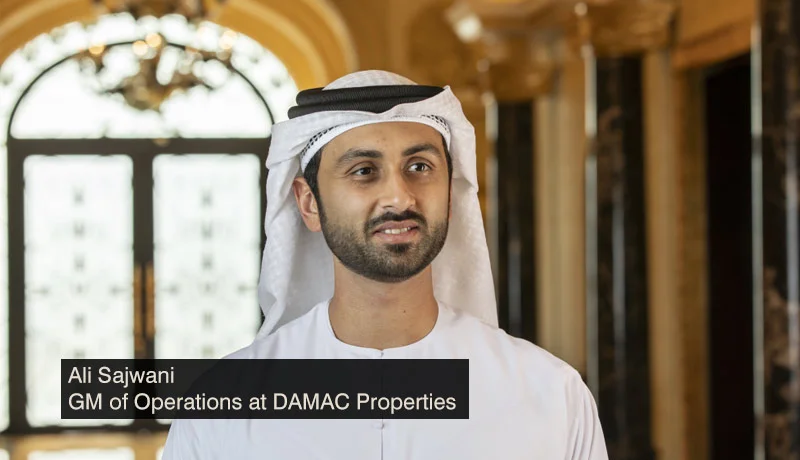15 March 2025, Sat |
7:59 AM

Emirati entrepreneur has urged SMEs and entrepreneurs to develop healthcare super apps for UAE residents. The COVID-19 pandemic is boosting demand for healthcare “super apps” in the UAE, according to Ali Sajwani, an Emirati entrepreneur and general manager of operations for global real estate development company DAMAC Properties.
Sajwani, who has led DAMAC’s digital transformation, is urging entrepreneurs and SMEs across the UAE to use their ingenuity and invention to speed up the development of a healthcare super app that would improve the nation’s wellness and health.
Super applications bundle together internet messaging, social media, marketplaces, and other services. Super apps like WeChat in China and Paytm and PhonePe in India are already altering the services environment in emerging nations. According to Statista, WeChat is one of the most popular social networks, with 1.25 billion monthly active users in Q2 2021.
Although super apps are still in their infancy in the healthcare industry, medical devices are becoming smarter by the day, with the iWatch, Fitbit, BLE heart rate monitors, pulse rate monitors, diabetes checkers, and a slew of other devices providing detailed information when paired with mobile apps. Medical health records are also easier to manage online, and doctors and patients can access them from anywhere in the country.
According to the Dubai Health Authority (DHA), 30 percent of the Emirate’s population is diabetes or pre-diabetic, and 27.8% of adults are overweight. Super applications in healthcare have the ability to empower patients to make better lifestyle decisions and provide improved access to health care professionals.
Super applications can provide a holistic approach to health and wellness by incentivizing good behaviour and streamlining contact with practitioners by encouraging daily self-management and delivering frequent follow-up care.
“Super apps have the potential to revolutionise the healthcare sector by adopting an approach that offers convenience and simplicity to patients. There is an increasing need for on-demand healthcare solutions that goes hand in hand with the increasing awareness and health consciousness among consumers,” said Sajwani.
“As super apps are slowly finding their way into Western markets, the time is right for the UAE to engage its entrepreneurial spirit and accelerate the development of one single mobile app solution. One that provides a high level of convenience for patients, allows for data sharing across platforms and service providers, and eliminates the complex processes and procedures involved in managing healthcare,” he added.
The UAE placed top in the area in the 2020 Global Innovation Index, and has taken many initiatives to promote and foster innovation, as part of the country’s Vision 2021’s ‘United in Knowledge’ pillar. For example, the Emirates Development Bank Strategy, which was recently unveiled, allocates AED 30 million to support the UAE’s startups and SMEs, which are the backbone of the country’s economic environment.
Artificial intelligence (AI), robotics, biotechnology, and 3D printing incubators, such as the Dubai Future Accelerators initiative, were built expressly to facilitate rapid implementation of transformational technologies. Meanwhile, Smart Dubai is collaborating with the Dubai Health Authority on a smart inventory software that allows users to perform warehouse transactions and track the supply chain for pharmaceuticals from anywhere using a smartphone, tablet, or other portable device.
Ali Sajwani is a founding board member of Emirates Angels Investors Association, having inherited an entrepreneurial drive from his father Hussain Sajwani, the founder of DAMAC Properties. Through its investor network, this non-profit organisation aspires to positively contribute to the early-stage investment ecosystem, and it collaborates with start-ups and appropriate authorities to create the best possible investment environment.
“With the global mHealth market size estimated to reachUS$166.2 billion by 2028(*), it is too big to ignore. Therefore, start-ups and entrepreneurs in the UAE should consider channelling their energies into playing a more prominent role in this market, by becoming invaluable players in the super app space,” Sajwani concluded.